A MISSION FOR FARMING:
THE NFU’S BLUEPRINTS FOR GROWTH

NFU President Tom Bradshaw
NFU President Tom Bradshaw
Today, British farming is facing some of the biggest challenges it has ever had to deal with.
Extreme weather events have seen record rainfall during the past two years, with some farms facing the loss of entire crops, along with a widespread reduction in yields and severe challenges for those raising livestock.
The Ukraine war has continued to put pressure on global supply chains and has meant high prices for crucial inputs such as fuel and fertiliser. And geo-political turbulence goes beyond Ukraine.
Conflict in the Middle East is disrupting critical trade routes, while major trading nations and blocs threaten – and sometimes implement – protectionist policies which only serve to exacerbate these challenges.
Unbalanced trading
Closer to home, we have witnessed huge adjustments in supply chains and international trade brought about by Brexit.
Unbalanced trading arrangements mean our exports face far higher levels of friction than imports from the EU, while opening us up to tariff-free trade with some of the biggest agricultural exporters in the world like Australia and New Zealand.
Meanwhile, our departure from the Common Agricultural Policy has meant a radical reform of the way agriculture is supported in the UK, removing the old system of direct payments and meaning cashflow has never been tighter for farmers and growers.
And all of this against the backdrop of an intensely competitive food retail sector in which farmers and growers largely operate as price takers.
Into all of this has stepped a new government. And the Prime Minister and Chancellor have been clear – economic growth is its number one mission.
The NFU agrees.
A sustainable future
If we are to shore up our food security, drive investment and jobs in all parts of the UK, and move towards a more sustainable future that addresses the challenges of a changing climate, then sustainable economic growth is essential.
But to achieve this growth, we need an enabling economic environment that gives farmers and growers confidence to plan for, and invest in, the future.
The announcement in the Budget of the removal of Inheritance Tax reliefs that were designed to prevent the break-up of family farms, and other businesses that have been in families for generations, has left many farmers and growers fearing for the future.
The increase in other costs that were announced, like employers’ National Insurance contributions, runs the risk of dampening growth rather than pump-priming it.
Confidence in agriculture is at an all-time low. But the government has a raft of opportunities to turn this around.
Firm foundations needed
The forthcoming Spending Review, this autumn’s Budget, the Industrial Strategy and Trade Strategy, and the EU Reset negotiations all provide chances to introduce well-thought out, pro growth priorities. As do the Food Strategy, Land Use Framework and 25-year Farming Roadmap being developed by Defra.
The government clearly has a lot on its plate, and it will be a challenge to ensure all of these strategic programmes are joined up, complementary and coherent.
The NFU’s blueprints for farming can help ensure we achieve this. By following them, the government can lay firm foundations for a sustainable and profitable future.
These foundations will ensure a safe, healthy and affordable supply of British food. They will safeguard communities in some of our most cherished, and often most fragile and remote, landscapes. And they will underpin so many other parts of the economy, providing the stability, investment and innovation that will allow British farming – and the country – to flourish over the rest of the decade and beyond.

NFU President Tom Bradshaw
NFU President Tom Bradshaw
Today, British farming is facing some of the biggest challenges it has ever had to deal with.
Extreme weather events have seen record rainfall during the past two years, with some farms facing the loss of entire crops, along with a widespread reduction in yields and severe challenges for those raising livestock.
The Ukraine war has continued to put pressure on global supply chains and has meant high prices for crucial inputs such as fuel and fertiliser. And geo-political turbulence goes beyond Ukraine.
Conflict in the Middle East is disrupting critical trade routes, while major trading nations and blocs threaten – and sometimes implement – protectionist policies which only serve to exacerbate these challenges.
Unbalanced trading
Closer to home, we have witnessed huge adjustments in supply chains and international trade brought about by Brexit.
Unbalanced trading arrangements mean our exports face far higher levels of friction than imports from the EU, while opening us up to tariff-free trade with some of the biggest agricultural exporters in the world like Australia and New Zealand.
Meanwhile, our departure from the Common Agricultural Policy has meant a radical reform of the way agriculture is supported in the UK, removing the old system of direct payments and meaning cashflow has never been tighter for farmers and growers.
And all of this against the backdrop of an intensely competitive food retail sector in which farmers and growers largely operate as price takers.
Into all of this has stepped a new government. And the Prime Minister and Chancellor have been clear – economic growth is its number one mission.
The NFU agrees.
A sustainable future
If we are to shore up our food security, drive investment and jobs in all parts of the UK, and move towards a more sustainable future that addresses the challenges of a changing climate, then sustainable economic growth is essential.
But to achieve this growth, we need an enabling economic environment that gives farmers and growers confidence to plan for, and invest in, the future.
The announcement in the Budget of the removal of Inheritance Tax reliefs that were designed to prevent the break-up of family farms, and other businesses that have been in families for generations, has left many farmers and growers fearing for the future.
The increase in other costs that were announced, like employers’ National Insurance contributions, runs the risk of dampening growth rather than pump-priming it.
Confidence in agriculture is at an all-time low. But the government has a raft of opportunities to turn this around.
Firm foundations needed
The forthcoming Spending Review, this autumn’s Budget, the Industrial Strategy and Trade Strategy, and the EU Reset negotiations all provide chances to introduce well-thought out, pro growth priorities. As do the Food Strategy, Land Use Framework and 25-year Farming Roadmap being developed by Defra.
The government clearly has a lot on its plate, and it will be a challenge to ensure all of these strategic programmes are joined up, complementary and coherent.
The NFU’s blueprints for farming can help ensure we achieve this. By following them, the government can lay firm foundations for a sustainable and profitable future.
These foundations will ensure a safe, healthy and affordable supply of British food. They will safeguard communities in some of our most cherished, and often most fragile and remote, landscapes. And they will underpin so many other parts of the economy, providing the stability, investment and innovation that will allow British farming – and the country – to flourish over the rest of the decade and beyond.
How British farming can contribute to the government’s missions
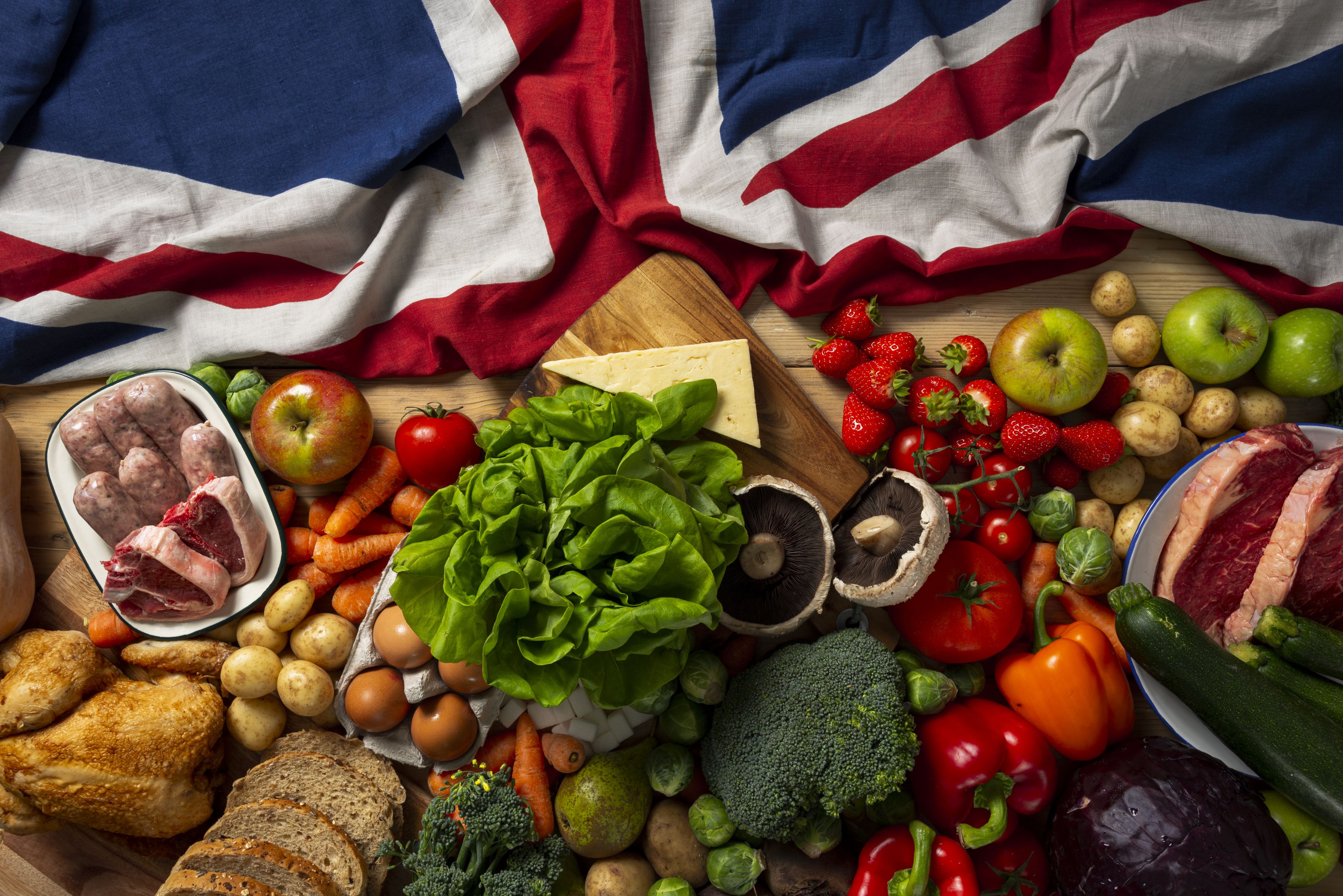
In February 2023, Sir Keir Starmer set out five missions that a future Labour administration would seek to deliver, setting out his priorities for government. These missions have become the ‘guiding lights’ of government policy.
The Prime Minister and Chancellor have increasingly identified economic growth as sitting at the heart of the government’s Plan for Change, its roadmap for delivering on its missions.
Labour’s five missions
- Secure the highest sustained growth in the G7
- Make Britain a clean energy superpower
- Build an NHS fit for the future
- Make Britain’s streets safe
- Break down the barriers to opportunity at every stage
The NFU believes that farming can contribute to all of these missions.
In particular, the mission for growth, which is focused on driving economic activity, growth and investment, is one that strongly corresponds with many of the NFU’s policy priorities.
The government has also set out three overriding principles – what it terms the ‘strong, stable and secure foundations’ – that will guide the mission-led government:
- Economic stability
- Strong national defence
- Secure borders
These three elements, underpinning the strong foundations the government believes are fundamental to achieving its missions for the whole country, are critical to a thriving domestic farming sector too.
And farming can make a major contribution to those foundations:
- Economic stability: A healthy and profitable farming sector provides jobs and security across the country, on farm and in allied industries, and delivers economic stability in often overlooked rural communities.
- National security: A thriving, domestic farming sector can ensure a safe, affordable and healthy supply of food in an increasingly unstable world, underpinning the government’s manifesto acknowledgement that ‘food security is national security’.
- Secure borders: Robust but proportionate immigration policies can ensure farming gets the labour it needs, while properly resourced border controls on goods will ensure the country’s biosecurity and avoid damaging animal and plant diseases.
But beyond these foundations, farming can help provide the building blocks that actually deliver the government’s missions, and drive economic growth, through a mission for farming.
Why we need a mission for farming
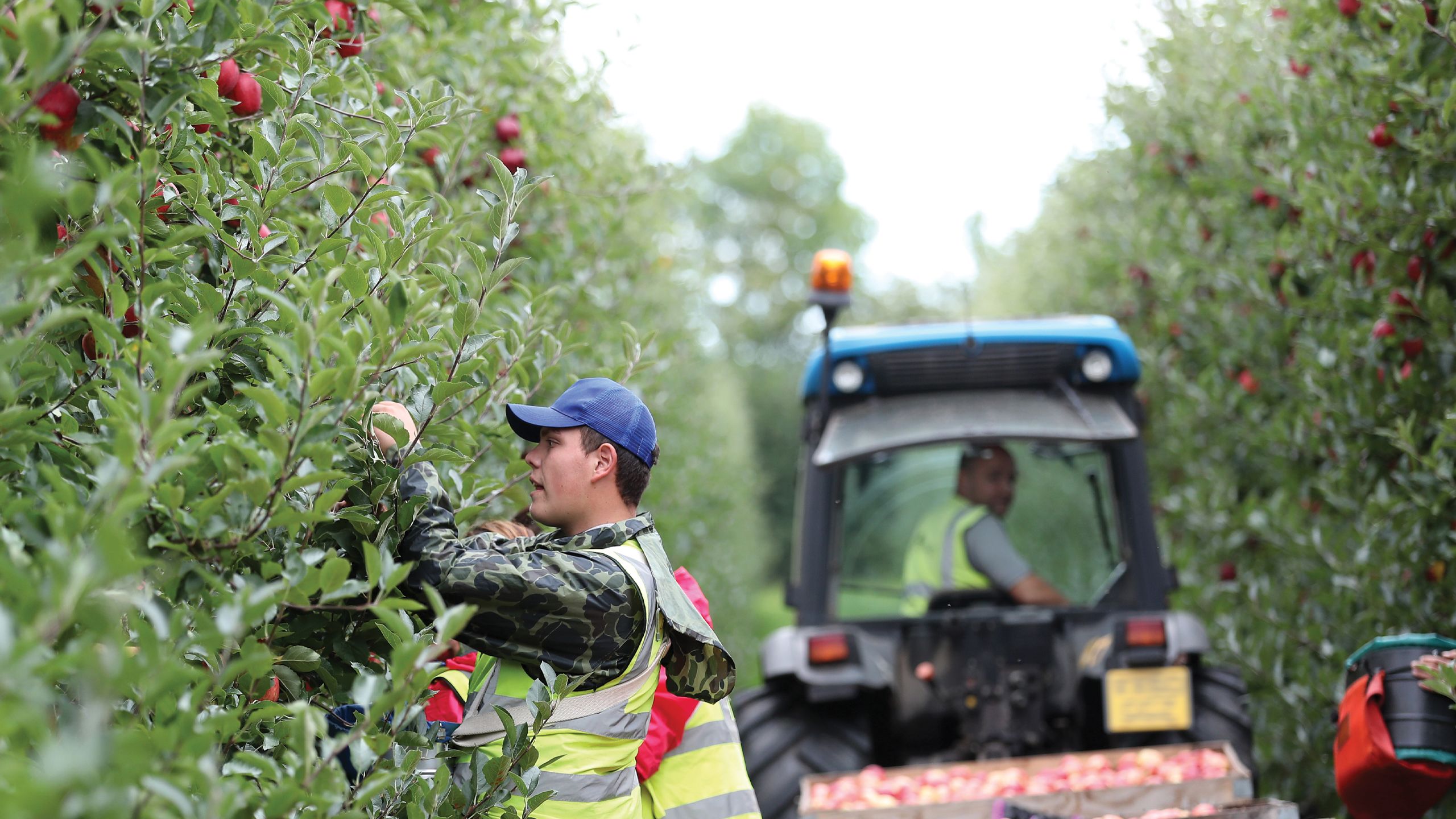
The Prime Minister has spoken of the importance of both food security and economic growth across every part of the UK.
As farmers and growers, we see this as a mission for farming:
- to ensure sufficient domestic provision of safe, nutritious and affordable food, so that the nation’s food supply is resilient enough to guard against external shocks – whether climatic, geo-political or commercial;
- to provide jobs and investment in rural areas and the left-behind regions, outside the metropolitan hubs on which governments find it all too easy to concentrate economic policy;
- to underpin our largest manufacturing sector, food and drink, which is worth £147.8 billion in gross value added to the UK economy and supports 4.38 million jobs, across all parts of the UK; and
- to secure cost-effective environmental delivery, where viable farm businesses are trusted to manage the land for both food and nature, and where food production provides the critical foundation of many of our most cherished natural habitats.
Agriculture underpins the UK’s largest manufacturing sector, food and drink, which is worth £147.8 billion in gross value added to the UK economy and supports 4.38 million jobs.
The government’s stated missions are vague when it comes to the role agriculture and horticulture can play in contributing to their outcomes.
There is little mention of food, other than in the context of the important issue of food poverty and food banks. Beyond a strong focus on clean energy, there is little about the wider challenges of achieving net zero and supporting biodiversity, something farmers across the UK are striving to deliver alongside producing food.
And the missions have a tendency towards urban rather than rural priorities, illustrated by the focus on safer streets in tackling crime, when rural crime is as much of a blight on our country.
In the spirit of partnership, our mission for farming, set out in detail across our four blueprints for growth, is intended to rectify this and complement the government’s missions.
In particular, it is designed to show how agricultural and horticultural businesses can play a vital part in boosting economic growth across all parts of the country.
The foundation of our mission for farming

Our mission for farming is set out across four broad areas:
But, as with the government’s missions, these areas – and the ‘asks’ that fall within them – can only be successfully delivered with strong foundations.
These areas provide the focus – the rationale – for our mission:
- Providing economic growth and jobs;
- Safeguarding our food security; and
- Managing our farmed environment.
Economic growth and jobs throughout the UK
The first of Labour’s five missions – and the government’s primary mission – is all about economic growth, building on the foundation of economic stability. This corresponds well with the NFU’s vision set out across our blueprints for growth.
At a fundamental level, a healthy farming and horticulture sector is of vital importance to the wider agri-food supply chain – the UK’s largest manufacturing sector. The inward investment British food businesses attract is built on the domestic producers who provide the raw ingredients on their doorstep.
The range and coverage of the agri-food sector is another vital aspect in going for growth across the UK. Unlike many industries, farms, food companies and retailers operate in or near almost every city, town and village in the country.
A genuine desire to re-balance our economy, therefore, must have the productivity and viability of our food and farming industries at its heart. And this underlines the importance of the farming sector to rural communities and businesses, both pre and post-farmgate.
Farming is often inseparable from the rural communities it operates within - a fundamental part of the economic, social and cultural identity of those communities. It is crucial that government does all it can to safeguard farming’s economic future and viability.
National food security
Food security is a critical aspect of national security. While we will always import some of the food we eat, ensuring a strong and resilient domestic productive capacity is critical to guard against risks such as global climatic events, geo-political disruption, and fragile supply chains.
This was one of the key findings of the National Preparedness Commission’s report on the civil food resilience gap in February 2025, which highlighted the “danger of the UK repeating past mistakes, assuming others will always feed us”.
In addition, the security of our borders should be about more than legitimate concerns over immigration. Biosecurity and border controls on goods should be taken into account, ensuring we guard against the potential damage – both in terms of health and economics – of plant and animal diseases.
The government makes the case for energy security in its missions, arguing for “stronger national security and energy independence by using our abundant national resources so that we can control our destiny”.
We believe an equivalent argument can be made for food – we can use our abundant national resources to produce a greater proportion of the food we need, contributing to healthier diets and relying less on imports in an increasingly uncertain world.
The UK’s maritime environment, good soils and world-class agri-science base make it one of the best places on earth to produce food. We must not take that natural advantage for granted.
Environmental management
To meet our food security needs, alongside our net zero targets and public expectations around biodiversity and environmental protection, the government must recognise the role of farmers in managing the environment, a critical aspect of its Land Use Framework.
In particular, the framework must recognise that cost-effective delivery of statutory environmental targets relies on resource-efficient, climate-smart food production, often in the same fields. Environmental targets are complementary to our food security ambitions, not in conflict with them.
There should also be a clear commitment to policies that provide UK farmers with the tools to properly contribute to our net zero ambitions, through agricultural policies underpinned by a sufficient budget, as well as funding for innovation, R&D and financial incentives for adopting sustainable practices on farm.
We need a clear recognition that off-shoring our agricultural production – relying more rather than less on imports – means relinquishing responsibility for the environmental impact of food production and relying on countries who will often be the worst impacted by climate change to feed us.
Environment and climate change
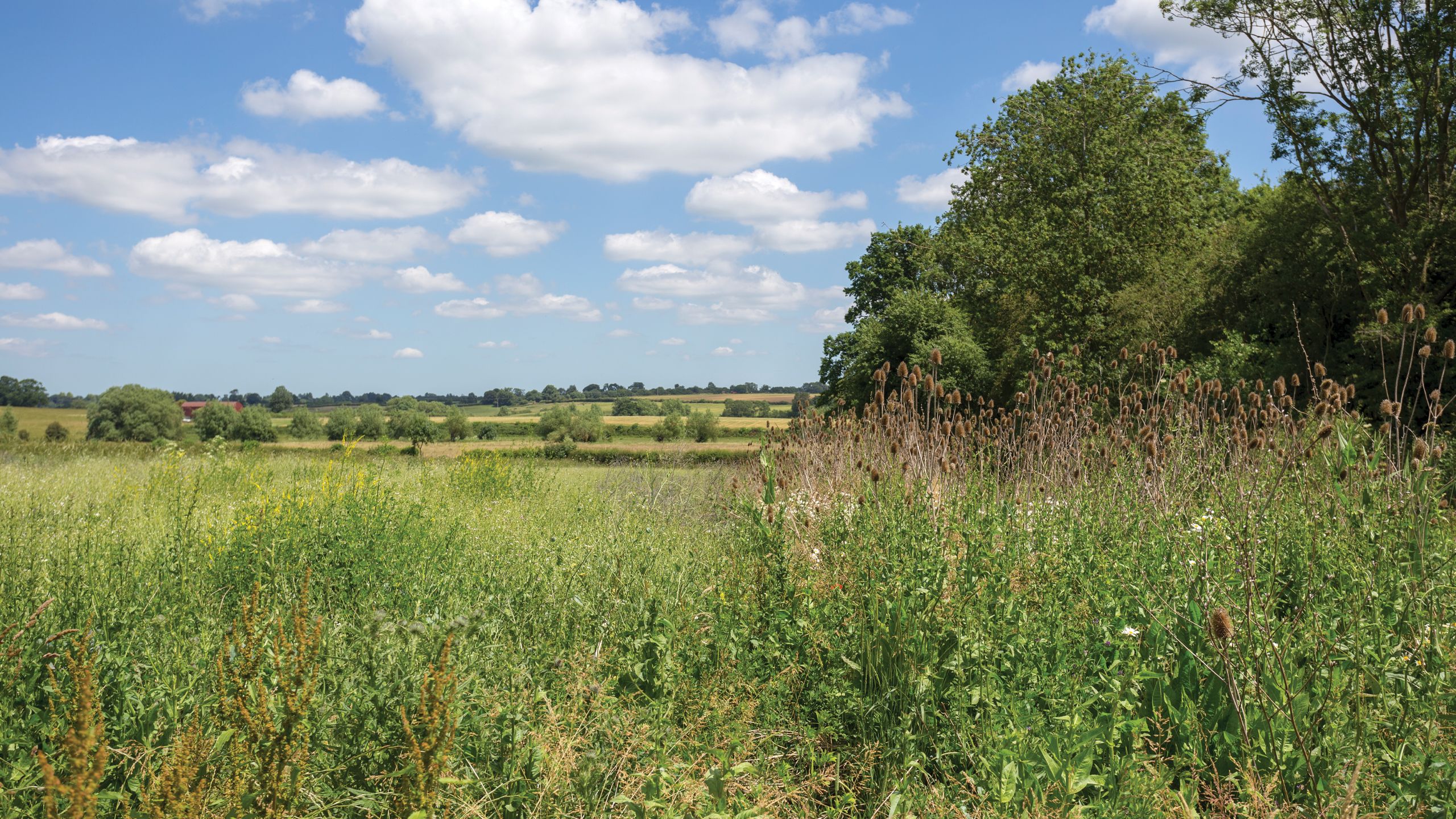
Farmers and growers have shaped and maintained our iconic British countryside for generations.
With agriculture occupying more than 70%of the UK land area, they are at the forefront of ensuring that our natural resources are protected, that we deliver the environmental targets and commitments in the government’s Environmental Improvement Plan, and that our environment thrives alongside sustainable, climate-friendly farm businesses.
Farmers and growers are at the heart of the country’s approach to both adapting to and mitigating the impact of climate change, which is already having noticeable effects on farm assets and productivity.
The UK has a target of reaching net zero by 2050 and the government has submitted a Nationally Determined Contribution target of an 81% reduction in GHG (greenhouse gas) emissions below 1990 levels by 2035.
Reducing GHGs from agricultural production is complex and will need improved productivity and infrastructure. This will require not only cashflow and capital investment, but also an enabling policy environment.
All of this highlights the fact that there are huge, sometimes competing, demands being made on land: for agriculture, for leisure and recreation, for improvements in biodiversity and protected landscapes, and for economic and residential development alongside national strategic infrastructure.
Given the finite land area of the UK, and the importance of food security in increasingly volatile and uncertain times, it is important that we develop a strategic, multifunctional and coherent land use strategy focused on resource-efficient, climate-smart production.
NFU priority asks
Protecting and enhancing our farmed environment
- A multifunctional Land Use Framework that manages the risk of significant competition between land use categories, based on robust scientific evidence, and avoids long-term or irreversible change to the productive capacity of farmland
- Environmental Land Management schemes (ELMs) that are accessible to as many farmers and growers as possible, provide a genuine financial incentive to deliver public goods, and complement farmers’ role as food producers
- Support for the development of private and voluntary environmental markets in line with the NFU’s five key principles, which will play an important role in achieving agriculture’s net zero ambition as well as providing businesses with a valuable new source of diversified income.
- Access to water for livestock and crop production in times of shortages to be guaranteed, and its value recognised, in any future food strategy.
- A flood management system that recognises the value of protecting agricultural land, and which maintains existing assets and systems to better accommodate rainfall events or allow for swifter recovery from flooding.
Adapting to and mitigating the impacts of climate change
- A clear plan as we prepare for the next Climate Change Risk Assessment and National Adaptation Programme which assesses and meets the scale and wide-ranging nature of the challenges ahead.
- Proper assessment of the contribution of government policies, such as the current Agricultural Transition Plan and ELMs, to improving the climate resilience of farm businesses, including SFI actions that target GHG reduction and sequestration, and tax allowances to encourage a wide range of investments.
- An ambitious and long-lasting government productivity programme to boost investment, R&D, knowledge exchange, training and advice, collaboration and incentives to adopt technical advances.
- A time-limited national programme for every farm in England to access an SFI action to complete a GHG audit, including access to a qualified adviser to assist with data inputs and analysing outcomes.
- To guard against fertiliser price inflation from the forthcoming Carbon Border Adjustment Mechanism, much greater fertiliser market transparency is required, while government should target R&D in alternative products, as well as grow industry precision knowledge to become world leading in resource use efficiency.
Resilience
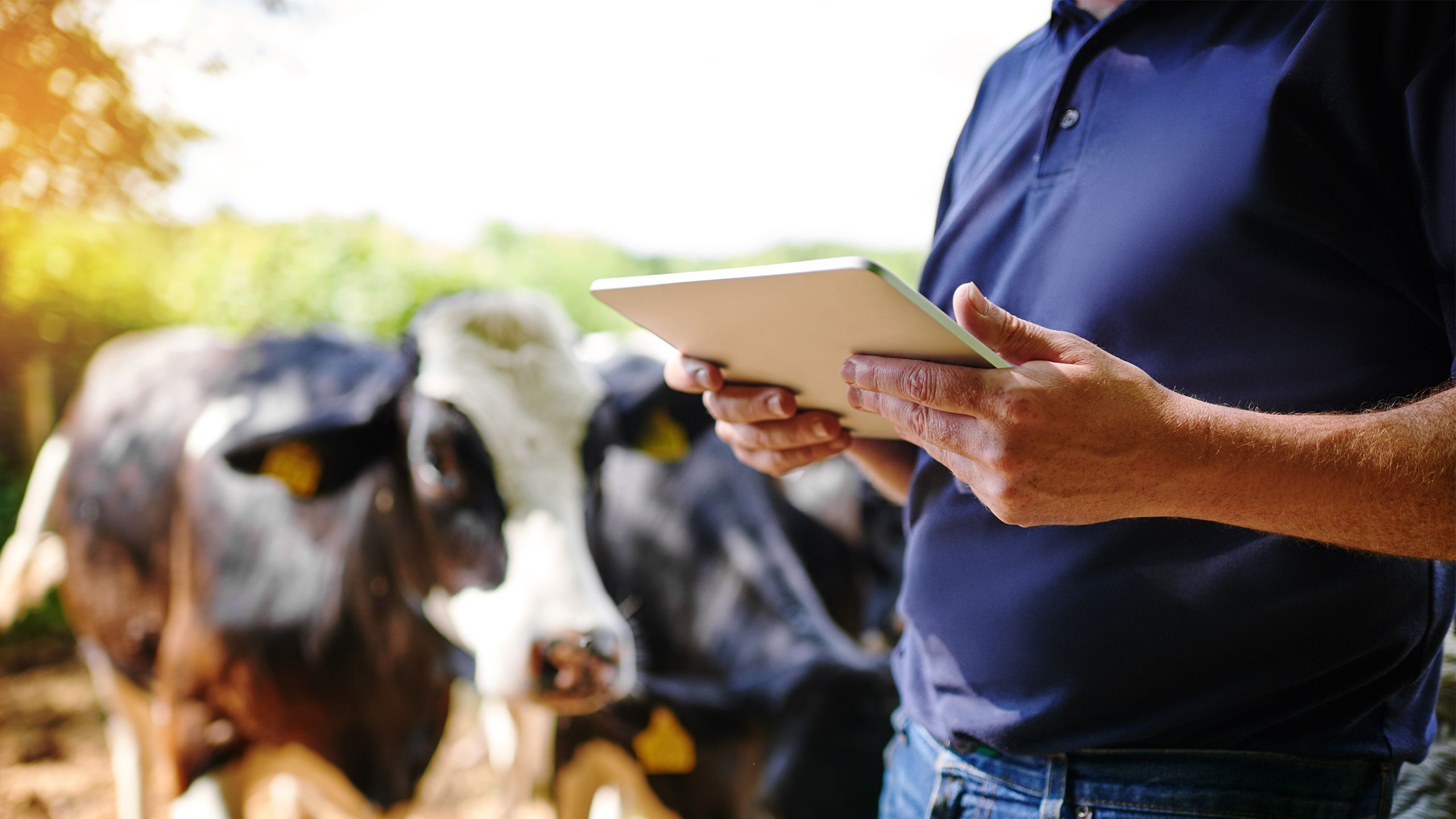
The economic resilience of farmers and growers, as well as of the broader agri-food sector, is determined by the ability to anticipate, withstand and recover from shocks, disruptions and broader economic pressures.
Recent years have highlighted the prevalence of such pressures through the impacts of global events including Brexit, the Covid-19 pandemic and the Ukraine conflict, while the severe flooding we have witnessed in the past two years has demonstrated the compounding pressures that climate change can have on supply chains already exposed to volatile global markets.
Such events have driven agricultural input costs and, in turn, food price inflation to their highest levels in recent memory, rippling through agri-food supply chains and underpinning the cost-of-living crisis experienced by UK households.
They have also highlighted the importance of investing in a resilient domestic agricultural sector to safeguard the integrity of the UK’s food supply chain. Such resilience can be achieved if farmers and growers are able to adopt a three-fold strategy based on protecting assets, driving productivity, and managing market and production risk.
Government has an important role to play, particularly in ensuring the agriculture budget delivered by Defra will deliver the government’s economic, food security, environmental and clean energy ambitions.
These challenges need to be matched by a renewed and improved financial budget – a view shared by many environmental NGOs and other organisations involved in farming and land management, highlighting cross-sector consensus on the urgent need for a ring-fenced budget.
NFU priority asks
Protecting our assets
- A balanced multi-year agricultural budget over the lifetime of this parliament totalling £4 billion per year, with £2.7 billion to meet the government’s legislated environmental goals, £615 million for driving productivity, and £720 million to support the economic stability of farm businesses.
- Defra and its delivery bodies must be adequately resourced to successfully deliver the Farming and Countryside Programme.
Driving productivity
- A new Farm Business Investment Loan Scheme (FBILS), using government-backed loan guarantees and concessionary finance, and leveraging a significant amount of private investment, to drive uptake of Defra productivity grants such as the Farming Equipment and Technology Fund.
- Government to invest £615 million into activities that improve farm productivity, including capital investment of £185m which expands the current productivity elements of the Farming Investment Fund, £106m to accelerate the adoption of best practice and latest technologies, £141m for diversification and co-operation activities, and targeted research and development funding of £28m.
- Government to replace the EU Fruit and Vegetable Aid Scheme with an expanded productivity scheme focused on the growth of the horticulture sector.
Managing market and production risk
- Government to work with industry to develop a clear framework for determining what constitutes ‘a severe disturbance in agricultural markets’ that would trigger the exceptional measures support under section 20 of the Agriculture Act 2020.
- A cross-government plan to deal with threats such as anti-microbial resistance and exotic diseases, supported by a sufficiently resourced Animal and Plant Health Agency, the establishment of a vaccine fund underpinned by a vaccine strategy, and roll-out of the Livestock Information Service in line with its original objectives.
- More effective and efficient implementation of risk-based pesticides regulation, driven by a regulator resourced to deliver consistent decisions based on robust scientific evidence.
- Full funding for the bovine TB eradication strategy, scaled-up badger and cattle vaccination trials and fair compensation for farmers that continue to be affected by the disease until it is eradicated.
- Confirmation of a further round of the Rural England Prosperity Fund, a multi-year timeframe for fund delivery and expanded availability to all rural communities across England.
Investment and innovation

UK agriculture and horticulture already has some of the most forward thinking, productive and innovative businesses in the world.
With the right policy and regulatory framework, farmers and growers can be instrumental in driving greater economic growth and improving productivity.
This will provide jobs and drive inward investment in every corner of the UK, both in primary production and across a range of related industries, from those supplying goods and services to farming, through to those who buy and sell the goods we produce.
This requires an enabling business environment, including:
- a regulatory framework that allows for innovation while protecting consumers and the environment, providing the certainty to invest and grow for the future
- an approach to tax that encourages businesses to invest in efficiency
- investment in training and skills to maintain a critical mass of expertise in the industry
- increased support for research and development and knowledge exchange so that farms can adapt for the future and benefit from new technical advances.
It is also vital that government builds business confidence and trust with English farmers and growers, enabling them to discover pathways to a more profitable, productive and sustainable future.
This requires transparency in policy-making, predictable timelines, clear evidence pathways, and regular monitoring and reporting.
More can also be done to remove obstacles, big and small, that obstruct the smooth operation and growth of farm businesses.
This includes addressing an inefficient and precautionary planning regime, the blight of rural crime, a lack of access to sufficient labour, overly restrictive employment regulations, and a failure to ensure adequate connectivity in rural areas.
NFU priority asks
Taxation that incentivises rather than discourages investment
- An approach to tax policy that stimulates investment, especially in low carbon and climate-friendly plant and machinery such as new or refurbished buildings and infrastructure, fuel and energy systems, and equipment to reduce emissions and harvest rainwater.
- Government should pause plans to change Agricultural Property Relief and Business Property Relief (APR and BPR) to properly consult with industry to ensure any changes to Inheritance Tax avoid the break-up of family farm businesses.
- Government should review other announcements in the 2024 Autumn Budget that will adversely affect farm businesses, including the tax treatment of double cab pick-ups and the removal of the Furnished Holiday Lettings tax regime.
Removing obstructions to the smooth day-to-day running of farm businesses
- Adoption of the National Rural Crime Network 10 Point Plan to tackle rural organised crime, including buy-in from local forces, Regional Organised Crime Units and the National Crime Agency.
- Ensure rural businesses benefit from the same level of connectivity as all businesses in the UK, with the Shared Rural Network to be entirely complete by 2025, recognition that government broadband schemes should include all types of broadband and not just fibre, and delivery of the government’s manifesto pledge of gigabit broadband and 5G coverage by 2030.
- Flexibility for farmer and grower businesses in employing the workforce they need, recognising the fluctuations inherent in agricultural and horticultural business cycles, and allowing ongoing access to a migrant seasonal workforce with a minimum of five years notice of any substantive changes to the Seasonal Worker Scheme.
An enabling approach to industrial policy and regulation
- A systematic review of regulation, assessing the effectiveness of legislation and regulation relating to agriculture, building on the work undertaken with respect to the Retained EU Law Bill (REUL) in 2022.
- All new policies and regulations that impact agricultural and horticultural businesses should undergo a food security impact assessment.
- An adequately funded and resourced planning system that explicitly recognises the importance of domestic agriculture in underpinning our food security, by reducing the use of Best and Most Versatile agricultural land for non-agricultural developments and recognising the need for agricultural infrastructure such as reservoirs, farm tracks and slurry tanks.
- Sustained government funding for pre-competitive applied agriculture and horticulture research and investment in key independent UK research organisations.
The NFU blueprints for growth
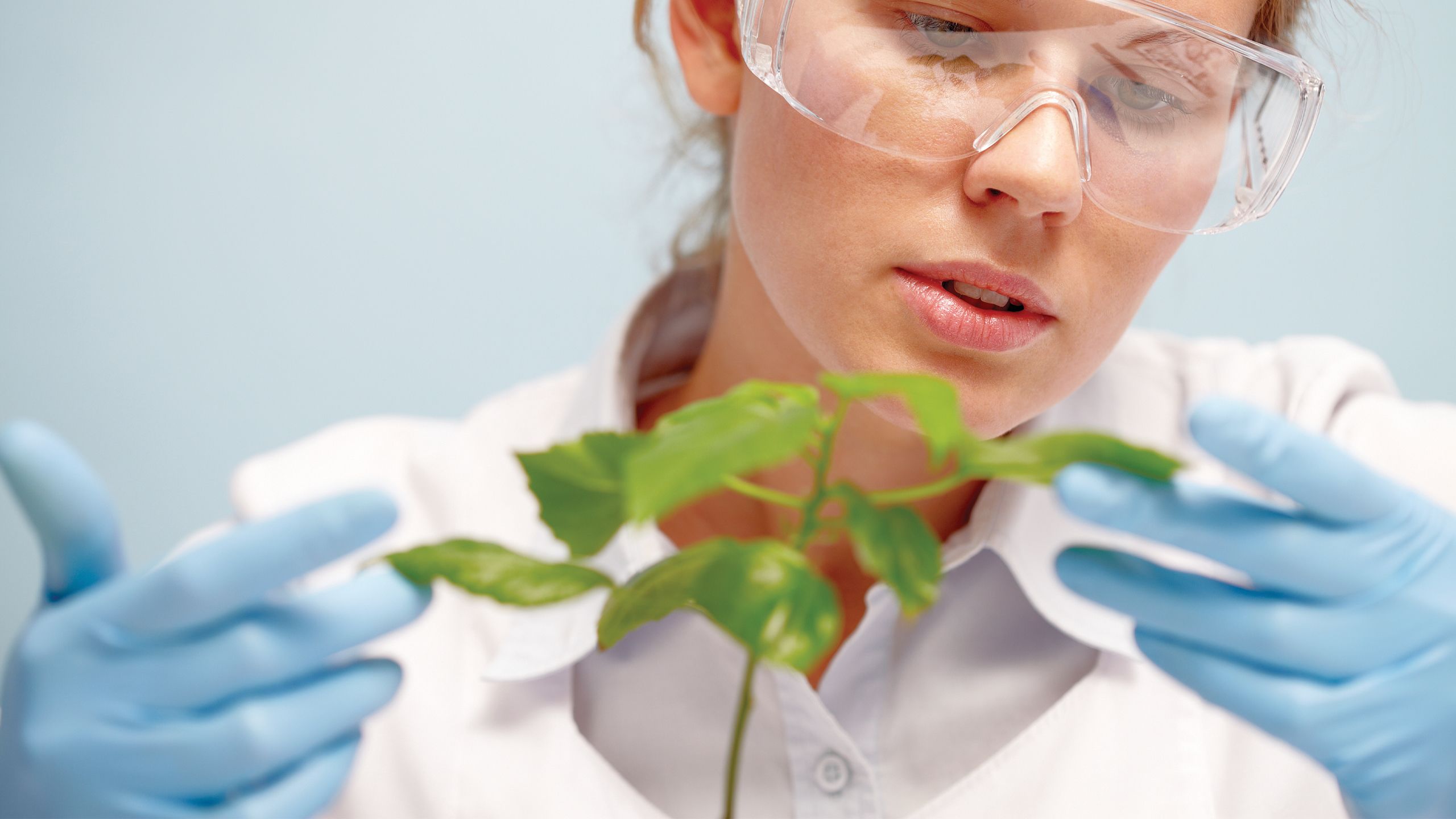
Each blueprint contains a number of ‘asks’, setting out how government and other stakeholders can work with farmers and growers to achieve positive outcomes across the many policy areas covered.
Our mission for farming can be delivered across four broad areas:
- Environment and climate change
- Commerce and international trade
- Resilience
- Investment and innovation
The sections outlined summarise the key asks in each area, giving a snapshot of the priorities that need to be addressed. But the detail is important too.
We encourage our partners and supporters to look at each of the blueprints to understand the full range of actions and activity needed to ensure agriculture and horticulture are pulling in the same direction to help the government achieve its missions.
The full prescription for successful outcomes across each area can be found in the full blueprints.













